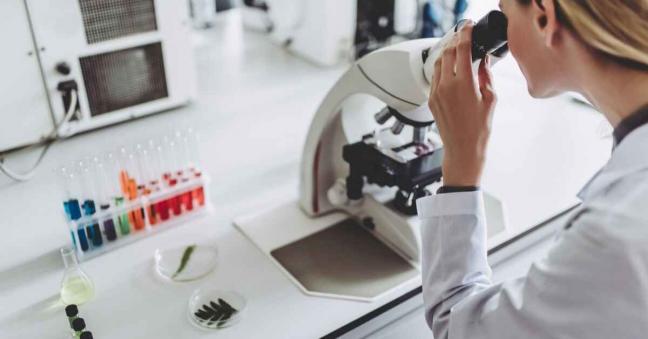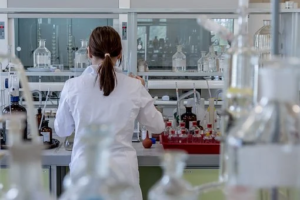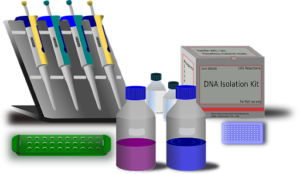Running A Biochemistry Lab Is Difficult: See How To Make It Easier
4 min read
Running A Biochemistry Lab Is Difficult: See How To Make It Easier
It’s an exciting time being a biochemist. You are surrounded by the tools of your trade and can explore the mysteries of life and the universe daily. But as with any profession, there is a dark side to being a biochemist: running a biochemistry lab is difficult.

There are many moving parts to a biochemistry lab, from keeping track of supplies and equipment to ensuring that experiments are carried out correctly. It can be easy to get overwhelmed and make mistakes that can cost time and money.
But there are ways to make running a biochemistry lab easier. Here are some tips:
1. Outfit Your Lab With Safety Equipment
No matter what type of biochemistry experiments you conduct, it is important to have the proper safety equipment. This includes things like fire extinguishers, safety goggles, and emergency exits. Having the right safety equipment can help prevent accidents and safeguard your lab in case of an emergency.

If you’re not sure what safety equipment you need, consult with a lab safety specialist. They can help you assess the risks of your experiments and recommend the appropriate safety gear. With the help of Biosafety and Biocontainment expertise, you can be sure your lab is as safe as possible. The main benefit of a biosafety consultant is giving you and your team the peace of mind to focus on your research.
2. Create A Standard Operating Procedure Manual
A standard operating procedure (SOP) manual is a document that outlines the steps necessary to safely and effectively carry out an experiment or task in the lab. Having an SOP manual can be incredibly helpful for new team members, as it gives them a detailed road map to follow.
Creating an SOP manual may seem daunting, but it doesn’t have to be. Start by breaking down the steps of an experiment or task into individual components. Then, write a brief description of each step. Once you have the steps down on paper, you can start filling in the details.
Be sure to include any safety precautions that need to be taken, as well as any troubleshooting tips. If possible, have someone else review your SOP manual to ensure it is clear and concise.
3. Keep A Lab Notebook
A lab notebook is a vital tool for every biochemist. It’s a place where you can record your observations, ideas, and results from experiments. Having a lab notebook can help you keep track of your progress and spot trends or patterns that may not be immediately apparent.
When starting a new experiment, date and sign each lab notebook page. This will ensure that your data is accurate and can be used in the future. Keeping a lab notebook is an essential part of being a biochemist. By recording your observations, ideas, and results, you can help make sense of your data and spot trends or patterns that may not be immediately apparent.
4. Stay Organized
One of the most important things you can do to make running a biochemistry lab easier is to stay organized. This means keeping track of supplies and equipment and maintaining neat and tidy work areas.
One way to stay organized is to create a system for labeling and storing items in your lab. This will help you know exactly where everything is and make it easy to find what you need. It would help to create a schedule for cleaning and organizing your lab space. This will help prevent clutter from building up over time.
5. Be Prepared For Emergencies
No matter how well you plan, emergencies can happen in the biochemistry lab. It’s important to be prepared to react quickly and effectively in these situations.
Some of the most common emergencies in a biochemistry lab include chemical spills, fires, and explosions. Be sure to have a well-rehearsed plan for dealing with these accidents. This may include using an emergency shower or eyewash station, evacuating the area, or calling for help. By taking the time to prepare for emergencies, you can help keep yourself and your team safe in the event of an accident.
6. Follow Safety Procedures
One of the most important things you can do to make your biochemistry lab safer is to follow all safety procedures. This includes wearing the proper safety equipment, carefully handling chemicals, and properly disposing of hazardous materials.
Wear the appropriate personal protective equipment (PPE) when working with dangerous chemicals. This may include gloves, goggles, or a face shield. It would help if you also took care to handle chemicals safely and dispose of them properly. Never put yourself or others at risk by cutting corners on safety procedures.
Running a biochemistry lab can be a challenging task. However, you can do a few things to make it easier. By staying organized, being prepared for emergencies, and following standard operating procedures, you can help create a safe and effective work environment.







